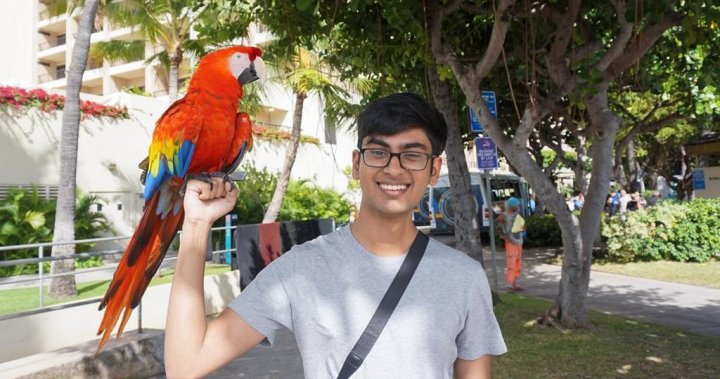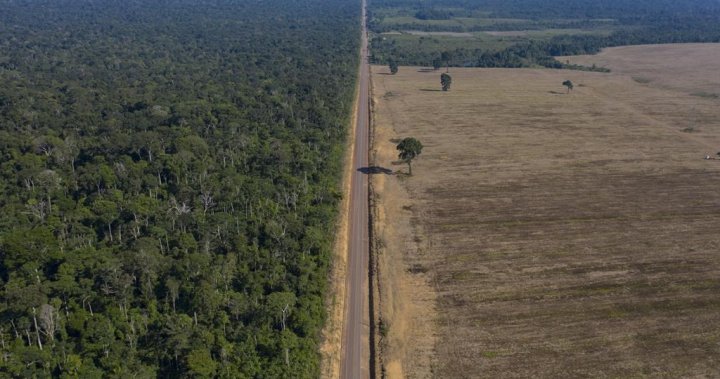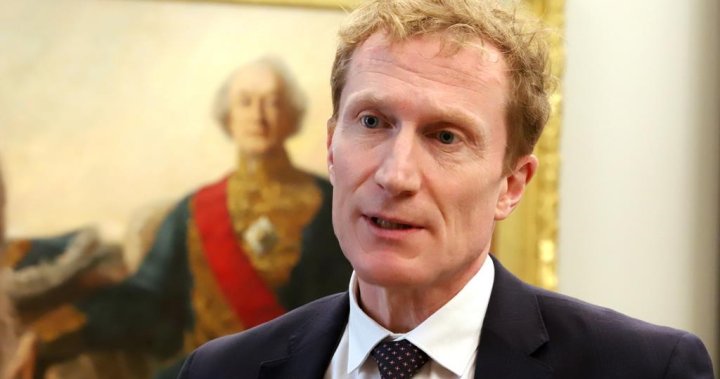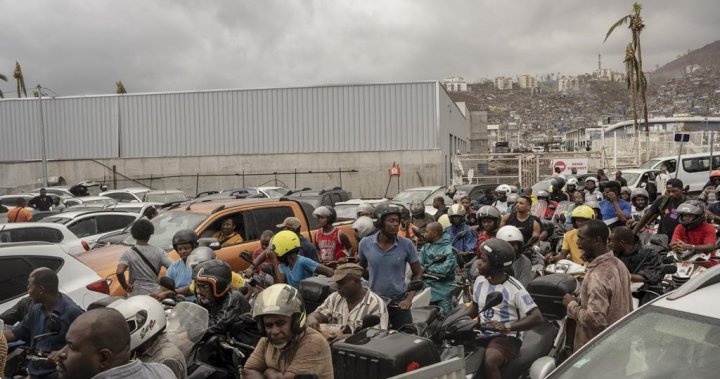A “overheated” immigration system that has allowed record numbers of new arrivals into the country is damaging Canada’s decades-old consensus on the benefits of immigration, Canadian Immigration Minister Mark Miller said as he reflected on changes at his department in an end-of-year interview.
He said the system needs some discipline to get the country back on track.
Over the course of 2024, Miller moved to limit the number of student visas, reduced the number of permanent residents it plans to accept, made it more difficult to obtain a work visa and temporarily halted most private refugee sponsorship applications.
All of this came as record levels of immigration pushed population growth to rise by more than three percent in 2023, double its average over the previous decade.
“There’s no shame in the fact that there are some things that I think we could have improved on. I think there’s a lot of good things that happened as well,” Miller said.
Story continues below ad
This interview was conducted on December 11, before Chrystia Freeland’s resignation as Finance Minister and Deputy Prime Minister upended Canadian politics. Miller, who was appointed immigration minister in July 2023, retained his position on Friday.
Miller said public tension over immigration is rooted in a number of factors, including high rates of asylum seekers, the high cost of housing, and political movements in the Western world.
This climate has created a challenge for Miller over the past year: “bringing some discipline” to the immigration system.
With an aging population and birth rates below replacement levels, Miller said immigration is necessary to ensure a strong workforce to help pay for key programs like health care.

Get breaking national news
For news affecting Canada and around the world, sign up to get breaking news alerts delivered to you right as they happen.
“We still need immigration, but we have to be able to say to Canadians that we’re listening and acting accordingly when we see things escalating,” Miller said.
The minister believes this includes bringing in more economic immigrants to lower the average working age of Canada’s population.
The increase in temporary workers is among the biggest issues to emerge since the pandemic. Initially, the goal was to use the program to fill gaps in the labor market, but the program grew so quickly that it opened the door to fraud and worker exploitation.
Story continues below ad
The government recently moved to make it more difficult for an employer to obtain an approved permit, and applications for low wages will be rejected in geographic areas where unemployment is above six percent.
Labor market impact assessments, the paperwork needed to help bring in a worker from abroad, are also worth between 50 and 200 points in Canada’s points-based Express Entry system for permanent residents. The CBC recently published an investigation revealing that these reviews are being sold, sometimes for tens of thousands of dollars.
“It’s being manipulated and I think there’s fraud that comes in different forms. I have a special role in making sure people don’t take advantage of that to get permanent residency, for example,” Miller said.
On December 19, Miller announced that these points would be removed from labor market impact assessments as part of a set of measures related to increased border controls in response to President-elect Donald Trump’s threat to impose tariffs on Canadian products.
Trending now
-

Two dead and 60 injured after a car ran over a crowd of people at a Christmas market in Germany
-

Luigi Mangione’s walk of criminals: Got more support for suspected killer?
The change includes requiring temporary residents to submit exclusively online applications to extend their stay, in an attempt to end a practice known as “flying the flag.” This occurs when someone crosses the US border from Canada, then turns around and returns to the border to process the application more quickly at a port of entry.
The government will also introduce legislative amendments to allow it to suspend or cancel immigration documents, including visas, when it considers it to be in the public interest. Miller used mass fraud as an example.
Story continues below ad
Trump threatens Canada and Mexico to impose 25% tariffs on all American imports from these two countries, unless they work to strengthen border security to stop illegal crossing and drug smuggling.
“I think the rhetoric that we’ve heard in the United States is unfortunate. It’s a system that I would never support, but we also need an immigration system that doesn’t seem to be being exploited by people trying to game the system,” Miller said.
“And I think that’s something we’re seeing increasingly with sometimes false asylum claims from certain countries.”
There are approximately 250,000 asylum claims waiting to be processed by the Immigration and Refugee Board of Canada. The largest number of claims in 2024 came from India, followed by Mexico.
Miller said he looked forward to introducing further asylum reforms next month to “simplify” the system and deal more quickly with illegal claims.
But introducing further reforms in a sensitive area amid a heated debate over border politics may be easier said than done. For Miller, it’s about trying to strike a realistic balance between obligations under humanitarian laws and what Canada can handle.
“What we can’t do is fall victim to our baser instincts. We need to step up and look at this in a rational way, that looks at these people as human beings, without being naive about the capacity of the Canadian government, Canada’s capacity to absorb the numbers of people that are coming here,” he said. Miller.
& Edition 2024 The Canadian Press

















